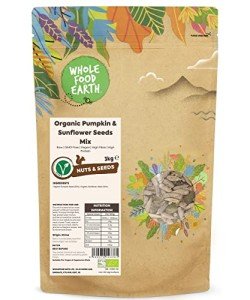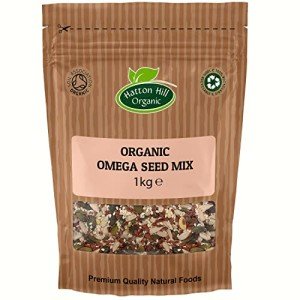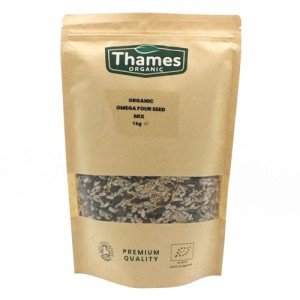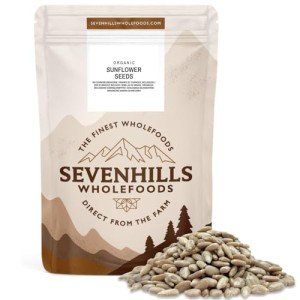The Humble Powerhouse: Unpacking the Banana's Nutrient Profile and its Potential Influence on Human Behaviour.
The banana is present in fruit bowls from Manchester to Melbourne, convenient and affordable, and palatable sweetness. Commonly perceived as a simple source of quick energy or a remedy for post-exercise cramps, the banana's contribution to human well-being potentially extends far beyond these widely recognised benefits. Its rich and complex nutrient profile harbours a fascinating array of vitamins, minerals, carbohydrates, fibre, and bioactive compounds, many of which play critical roles in the intricate biochemical symphony that underpins human physiology, including the complex systems governing mood, cognition, stress response, and sleep – the very essence of human behaviour.
This exploration will delve deep into the nutrient composition of the banana, dissecting its key components – potassium, vitamin B6, tryptophan, carbohydrates, fibre, vitamin C, manganese, magnesium, folate, and various phytonutrients. For each, we will examine its established physiological roles, with a particular focus on functions relevant to neurological health and behavioural regulation. We will consider how the regular inclusion of bananas in a balanced diet might support positive behavioural outcomes, such as improved mood stability, enhanced cognitive function, better stress resilience, and more restorative sleep patterns.
Banana’s: A Nutrient Inventory
Before exploring the behavioural links, it's essential to establish the nutritional landscape of a typical medium-sized banana (approximately 118 grams). While exact values vary depending on variety (Cavendish being the most common), ripeness, and growing conditions, representative figures provide a solid foundation:
Energy: ~105 kcal
Carbohydrates: ~27g (including ~14g sugar and ~6g starch – varies significantly with ripeness)
Fibre: ~3.1g
Protein: ~1.3g
Fat: ~0.4g
Potassium (K): ~422mg (approx. 9% of Recommended Daily Intake - RDI)
Vitamin B6 (Pyridoxine): ~0.43mg (approx. 33% of RDI)
Vitamin C (Ascorbic Acid): ~10.3mg (approx. 11% of RDI)
Manganese (Mn): ~0.32mg (approx. 14% of RDI)
Magnesium (Mg): ~32mg (approx. 8% of RDI)
Folate (Vitamin B9): ~23.6µg (approx. 6% of RDI)
Other notable compounds: Tryptophan (amino acid), various phytonutrients including phenolics (like gallic acid, catechins), carotenoids (beta-carotene, alpha-carotene, lutein), and even dopamine (primarily in the peel, but some in the pulp).
These nutrients do not exist in isolation. They interact synergistically within the body, participating in countless metabolic pathways. Let us now examine the key players in more detail and their potential relevance to behaviour.
Key Nutrients and Their Potential Behavioural Relevance
A. Potassium (K): The Electrolyte Maestro
Physiological Role: Potassium is a vital mineral and electrolyte, crucial for maintaining fluid balance, nerve signal transmission, and muscle contractions, including the heart muscle. It works in concert with sodium to maintain the electrochemical gradient across cell membranes, known as the membrane potential, which is fundamental for nerve impulse generation and propagation. It also plays a role in regulating blood pressure; adequate potassium intake is associated with lower blood pressure levels, partly by helping to counteract the effects of sodium.
Behavioural Links:
Nerve Function and Cognition: Efficient nerve signalling is the bedrock of all cognitive processes – thinking, learning, memory, focus. By ensuring proper function of the sodium-potassium pump and maintaining the resting potential of neurons, potassium supports the brain's electrical activity. While severe deficiency (hypokalaemia) can cause confusion, irritability, and fatigue, subtler variations in intake within the normal range might influence cognitive efficiency and mental alertness, although direct evidence linking banana potassium specifically to cognitive enhancement in healthy individuals is limited.
Stress and Blood Pressure: Chronic stress often contributes to elevated blood pressure. Potassium's role in blood pressure regulation offers an indirect link to stress management. By helping to maintain healthy blood pressure levels, adequate potassium intake may mitigate some of the physiological strain associated with chronic stress, potentially contributing to a calmer physiological state. While not a direct mood regulator, managing the physical symptoms of stress can indirectly improve subjective well-being.
Muscle Function and Fatigue: Physical fatigue can certainly impact mood and cognitive performance. Potassium is essential for muscle function, preventing cramps and weakness. By contributing to optimal muscle function, bananas may help combat the physical tiredness that can lead to irritability or reduced mental energy.
Banana's Contribution: Bananas are famously rich in potassium, providing a significant portion of the daily requirement in a single serving. This makes them an excellent dietary source for maintaining electrolyte balance and supporting the myriad functions dependent on this mineral.
B. Vitamin B6 (Pyridoxine): The Neurotransmitter Nexus
Physiological Role: Vitamin B6, specifically in its active coenzyme form pyridoxal 5'-phosphate (PLP), is arguably one of the most critical vitamins for brain function. It serves as an essential cofactor for over 100 enzyme reactions, many of which are involved in amino acid metabolism. Crucially, it is indispensable for the synthesis of several key neurotransmitters – the chemical messengers that regulate mood, cognition, and sleep.
Behavioural Links:
Serotonin Synthesis: PLP is a required cofactor for the enzyme aromatic L-amino acid decarboxylase (AADC), which catalyses the conversion of 5-hydroxytryptophan (5-HTP) to serotonin (5-hydroxytryptamine, 5-HT). Serotonin is heavily implicated in mood regulation (feelings of well-being, happiness), appetite control, and sleep onset. Low levels are strongly associated with depression and anxiety disorders. Adequate B6 intake is therefore foundational for maintaining healthy serotonin production.
Dopamine Synthesis: The same enzyme, AADC, also catalyses the conversion of L-DOPA to dopamine, another critical neurotransmitter. Dopamine is central to the brain's reward system, motivation, pleasure, attention, learning, and motor control. Imbalances are linked to conditions like Parkinson's disease and ADHD, as well as affecting mood and motivation levels. Vitamin B6 is thus essential for dopamine synthesis.
GABA Synthesis: PLP is a cofactor for glutamate decarboxylase (GAD), the enzyme responsible for converting the excitatory neurotransmitter glutamate into the inhibitory neurotransmitter gamma-aminobutyric acid (GABA). GABA acts as a "calming" agent in the brain, reducing neuronal excitability, promoting relaxation, and counteracting feelings of anxiety and stress. Sufficient B6 is necessary for maintaining adequate GABA levels.
Norepinephrine Synthesis: While less direct, B6 is also involved in pathways leading to the synthesis of norepinephrine (noradrenaline), a neurotransmitter involved in alertness, focus, stress response, and mood.
Cognition and Mood: Due to its central role in neurotransmitter synthesis, deficiency in Vitamin B6 has been linked to confusion, depression, irritability, and impaired cognitive function. Ensuring adequate intake is vital for supporting optimal mood balance, cognitive clarity, and stress resilience. Studies have shown associations between lower B6 status and increased risk of depression, particularly in older adults.
Banana's Contribution: Bananas are an outstanding source of Vitamin B6, providing roughly a third of the daily requirement. This makes them a significant dietary contributor to the biochemical pathways underpinning the synthesis of mood- and cognition-regulating neurotransmitters. This is perhaps one of the most compelling nutritional links between bananas and behaviour.
C. Tryptophan: The Serotonin Precursor (with caveats)
Physiological Role: Tryptophan is an essential amino acid, meaning the body cannot produce it, and it must be obtained from the diet. Its primary claim to fame in the context of behaviour is its role as the precursor for the synthesis of serotonin (via 5-HTP) and melatonin (the sleep hormone, synthesised from serotonin). It is also used for protein synthesis and niacin (Vitamin B3) production.
Behavioural Links:
Mood and Sleep: Because it's the starting material for serotonin, tryptophan intake has long been investigated for its potential effects on mood and sleep. The theory is that increasing dietary tryptophan could increase brain serotonin levels, thereby improving mood and promoting sleep. Indeed, tryptophan depletion studies (where participants consume a diet specifically lacking tryptophan) reliably induce a temporary lowering of mood, particularly in individuals with a history of depression. Tryptophan supplementation has shown some modest benefits for sleep and mood in certain studies, though results are mixed.
Banana's Contribution: While bananas contain tryptophan, their primary contribution to serotonin synthesis likely comes more significantly from their high Vitamin B6 content (essential for the conversion process) and their carbohydrate content (which may favourably alter the tryptophan:LNAA ratio, aiding transport into the brain), rather than from the absolute amount of tryptophan itself. Eating a banana provides the precursor (tryptophan), the necessary cofactor (B6), and the helpful carbohydrate matrix, potentially creating a favourable environment for serotonin production, even if the tryptophan amount alone isn't exceptionally high.
D. Carbohydrates (Sugars and Starch): Fueling the Brain
Physiological Role: Carbohydrates are the body's primary source of energy. They are broken down into glucose, which is the preferred fuel for most cells, including brain cells (neurons). The brain is incredibly energy-demanding, consuming about 20% of the body's total energy budget despite making up only 2% of its weight. Maintaining a stable supply of glucose is critical for optimal brain function.
Behavioural Links:
Cognitive Function: Brain functions like attention, memory, and learning are highly sensitive to glucose availability. Fluctuations in blood sugar can significantly impact cognitive performance. A sharp drop (hypoglycaemia) can cause confusion, irritability, difficulty concentrating, and fatigue. Conversely, very high blood sugar (hyperglycaemia) over time can also impair cognitive function. A steady supply of glucose supports sustained mental effort and focus.
The carbohydrate profile of a banana changes dramatically as it ripens. Green, unripe bananas are high in resistant starch, a type of carbohydrate that resists digestion in the small intestine and acts more like fibre. As the banana ripens and turns yellow (and eventually develops brown spots), this starch converts into simple sugars (sucrose, glucose, fructose). A ripe banana provides quick energy due to its higher sugar content (higher glycaemic index - GI), while a greener banana provides slower-releasing energy due to its resistant starch (lower GI). This difference impacts the speed and duration of the blood sugar response. A moderate ripeness likely offers a balance.
Tryptophan Transport: As mentioned earlier, the carbohydrate content of bananas stimulates insulin release, which can help facilitate tryptophan's entry into the brain by lowering the blood levels of competing amino acids.
Banana's Contribution: Bananas are an excellent source of carbohydrates. Depending on ripeness, they offer either quick-release energy (ripe) or slower-release energy (less ripe). This makes them effective for fuelling cognitive tasks, boosting energy levels when flagging, and potentially supporting mood stability by preventing excessive blood sugar dips. The combination with fibre (discussed next) helps moderate the blood sugar response compared to consuming pure sugar.
E. Fibre: The Gut-Brain Mediator
Physiological Role: Dietary fibre encompasses indigestible plant components. Bananas contain both soluble fibre (like pectin) and insoluble fibre. Soluble fibre dissolves in water to form a gel-like substance, slowing digestion and absorption of nutrients (including sugar), helping regulate blood sugar levels, and lowering cholesterol. Insoluble fibre adds bulk to stool, promoting regular bowel movements. Importantly, certain types of fibre, particularly the resistant starch found in greener bananas and pectin, act as prebiotics – food for beneficial gut bacteria.
Behavioural Links:
Blood Sugar Regulation: By slowing the absorption of sugars from the banana's carbohydrate content, fibre helps prevent rapid spikes and subsequent crashes in blood glucose. This contributes to more stable energy levels and moods, avoiding the irritability and fatigue associated with blood sugar volatility.
The Gut-Brain Axis: This is a rapidly expanding area of research. The gut and brain are intricately connected via neural, hormonal, and immune pathways. The gut microbiome – the trillions of bacteria residing in our digestive tract – plays a crucial role in this communication. Gut bacteria ferment prebiotic fibres (like those in bananas) to produce short-chain fatty acids (SCFAs), such as butyrate, acetate, and propionate. These SCFAs have numerous beneficial effects: they provide energy for colon cells, possess anti-inflammatory properties, and can influence brain function. Butyrate, for example, may enhance brain-derived neurotrophic factor (BDNF), crucial for neuronal growth and plasticity, and influence neurotransmitter systems.
Gut-Derived Neurotransmitters: Intriguingly, a significant portion of the body's serotonin (upwards of 90%) is produced in the gut by enterochromaffin cells, and gut bacteria can influence this production. While gut-derived serotonin doesn't directly cross the blood-brain barrier, it influences gut motility and signalling along the vagus nerve, which connects the gut to the brain, potentially impacting mood and stress responses indirectly. Gut microbes can also produce or modulate other neuroactive compounds, including GABA.
Inflammation: Chronic low-grade inflammation is increasingly linked to depression and cognitive decline. A healthy gut microbiome, supported by prebiotic fibres, helps maintain the integrity of the gut lining, reducing systemic inflammation which might otherwise negatively impact brain health and mood.
Banana's Contribution: Bananas, particularly when not overly ripe, provide valuable prebiotic fibre (resistant starch and pectin). This supports a healthy gut microbiome, which in turn may influence behaviour through SCFA production, modulation of inflammation, and communication along the gut-brain axis. The fibre also contributes significantly to blood sugar stability.
F. Vitamin C (Ascorbic Acid): The Antioxidant Defender
Physiological Role: Vitamin C is a powerful antioxidant, protecting cells from damage caused by free radicals and oxidative stress. It is also essential for the synthesis of collagen (important for connective tissues), carnitine (involved in energy metabolism), and crucially, certain neurotransmitters. The brain and adrenal glands have particularly high concentrations of Vitamin C.
Behavioural Links:
Neurotransmitter Synthesis: Vitamin C is a required cofactor for the enzyme dopamine β-hydroxylase, which converts dopamine into norepinephrine. As discussed, norepinephrine is involved in alertness, focus, and the stress response.
Antioxidant Protection in the Brain: The brain is highly metabolically active and generates significant oxidative stress. Vitamin C helps protect neurons from oxidative damage, which is implicated in neurodegenerative diseases and cognitive decline. Maintaining adequate antioxidant defences may support long-term cognitive health.
Stress Response: The adrenal glands, which produce stress hormones like cortisol, require Vitamin C for their function and contain high levels of it. During periods of stress, Vitamin C levels can be depleted more rapidly. Some research suggests that adequate Vitamin C intake may help modulate the cortisol response to stress, potentially improving resilience and reducing feelings of anxiety. Studies have shown supplementation can lower anxiety levels and improve mood in some populations.
Mood: Oxidative stress and inflammation are increasingly recognised as contributing factors in depression. Vitamin C's antioxidant properties may therefore play a role in mood regulation by mitigating these factors. Some studies have linked lower Vitamin C status to increased prevalence of depression and fatigue.
Banana's Contribution: While not as famously high in Vitamin C as citrus fruits, bananas provide a respectable amount (around 11% RDI). This contributes to the body's overall antioxidant capacity and supports enzymatic processes involved in neurotransmitter synthesis and stress hormone regulation, potentially offering modest support for cognitive function, mood, and stress resilience.
G. Manganese (Mn): The Enzyme Activator
Physiological Role: Manganese is a trace mineral that acts as a cofactor for numerous enzymes involved in various metabolic processes, including amino acid, carbohydrate, and cholesterol metabolism. Crucially, it is a key component of the antioxidant enzyme manganese superoxide dismutase (MnSOD), which protects mitochondria (the cell's powerhouses) from oxidative damage. It also plays roles in bone formation and blood clotting.
Behavioural Links:
Antioxidant Defence in the Brain: MnSOD is particularly important in the brain, protecting neurons from oxidative stress generated during energy production. This neuroprotective role is vital for long-term cognitive health.
Neurotransmitter Metabolism: Manganese is involved in the function of enzymes like glutamine synthetase, which plays a role in glutamate and GABA metabolism. Maintaining the balance between these excitatory and inhibitory neurotransmitters is crucial for normal brain function and mood stability.
Brain Development and Function: Manganese is necessary for normal brain development and function, although excessive intake can be neurotoxic. Optimal levels are required for processes underpinning learning and memory. While deficiency is rare, ensuring adequate intake supports these fundamental processes.
Banana's Contribution: Bananas are a good source of manganese, contributing about 14% of the RDI. This helps ensure the proper functioning of manganese-dependent enzymes, particularly those involved in antioxidant defence and neurotransmitter metabolism within the brain, thus indirectly supporting cognitive function and potentially mood stability.
H. Magnesium (Mg): The Relaxation Mineral
Physiological Role: Magnesium is involved in over 300 enzymatic reactions in the body. It plays critical roles in muscle and nerve function, blood glucose control, blood pressure regulation, energy production (ATP metabolism), protein synthesis, and DNA stability. It acts as a physiological calcium channel blocker and is involved in nerve impulse conduction and neurotransmitter release.
Behavioural Links:
Nerve Function and Neurotransmitter Regulation: Magnesium is essential for neuronal excitability. It modulates the activity of the N-methyl-D-aspartate (NMDA) receptor, a key player in learning, memory, and neuronal plasticity, but which can cause excitotoxicity if overstimulated (e.g., by glutamate). Magnesium helps keep NMDA receptor activity in check, preventing excessive neuronal excitation. It also influences the release and uptake of various neurotransmitters.
Stress Response and Anxiety: Magnesium appears to dampen the activity of the hypothalamic-pituitary-adrenal (HPA) axis, the body's central stress response system. It may reduce the release of ACTH (which signals the adrenals to release cortisol) and modulate the adrenal glands' sensitivity to ACTH. Low magnesium levels are often associated with increased stress perception, anxiety, irritability, and sleep disturbances. Supplementation studies have shown promise in reducing symptoms of anxiety and potentially depression.
Sleep Quality: Magnesium contributes to relaxation by regulating neurotransmitters like GABA and potentially melatonin production. Its role in muscle relaxation can also aid sleep onset. Deficiency has been linked to insomnia and restless sleep.
Mood: Low magnesium status has been observed in individuals with depression, and some studies suggest a potential antidepressant effect of magnesium supplementation, possibly via NMDA receptor modulation and effects on inflammation and the HPA axis.
Banana's Contribution: Bananas provide a useful amount of magnesium (around 8% RDI). While not the richest source, regular consumption contributes to overall magnesium intake, supporting nerve function, potentially enhancing stress resilience, promoting relaxation, and contributing to better sleep quality and mood stability.
I. Folate (Vitamin B9): The Methylation Master
Physiological Role: Folate is crucial for DNA synthesis, repair, and methylation. Methylation is a fundamental biochemical process involved in regulating gene expression, metabolism, and neurotransmitter synthesis. Folate works closely with Vitamin B12 and B6 in the metabolism of homocysteine, an amino acid that can be harmful at high levels.
Behavioural Links:
Neurotransmitter Synthesis: Folate, in its active form (5-methyltetrahydrofolate, 5-MTHF), is involved in the synthesis of tetrahydrobiopterin (BH4). BH4 is an essential cofactor for the enzymes tryptophan hydroxylase (involved in serotonin synthesis) and tyrosine hydroxylase (involved in dopamine and norepinephrine synthesis). Adequate folate status is therefore critical for the production of these key mood-regulating neurotransmitters.
Mood and Depression: Low folate levels have been consistently associated with an increased risk of depression and a poorer response to antidepressant medication. High homocysteine levels (often resulting from low folate, B12, or B6) are also linked to depression and cognitive impairment, possibly due to vascular damage or direct neurotoxic effects. Supplementation with folate (often as 5-MTHF) is sometimes used as an adjunct therapy for depression.
Cognitive Function: Folate is essential for cognitive health throughout life. Deficiency is linked to cognitive decline and an increased risk of dementia in older adults. Maintaining adequate folate status supports processes vital for memory and learning.
Banana's Contribution: Bananas provide a modest but useful amount of folate (around 6% RDI). While leafy green vegetables and fortified grains are richer sources, the folate in bananas contributes to the overall pool required for vital methylation processes and the synthesis of neurotransmitters essential for mood and cognitive function.
J. Phytonutrients: Antioxidant and Anti-inflammatory Allies
Physiological Role: Beyond the vitamins and minerals, bananas contain various bioactive plant compounds (phytonutrients) with potential health benefits. These include phenolic compounds like catechins and gallic acid, which possess strong antioxidant properties, and carotenoids like beta-carotene, alpha-carotene, and lutein (giving bananas their yellow colour), which also act as antioxidants, with beta-carotene being a precursor to Vitamin A. Some dopamine has also been identified, particularly in the peel but also in the pulp, though its significance when ingested orally is debated (as it doesn't readily cross the blood-brain barrier and is likely metabolised quickly).
Behavioural Links:
Neuroprotection: The antioxidant activity of these compounds helps combat oxidative stress in the brain, protecting neurons from damage and potentially reducing the risk of neurodegenerative diseases and age-related cognitive decline.
Anti-inflammatory Effects: Chronic inflammation is linked to mood disorders and cognitive impairment. Some phenolic compounds found in bananas may exert anti-inflammatory effects, potentially contributing to better brain health and mood stability via the gut-brain axis or systemically.
Dopamine: While the presence of dopamine in bananas is interesting, consuming it orally is unlikely to directly increase brain dopamine levels due to the blood-brain barrier and metabolism in the gut and liver. However, it might have local effects in the gut or act as an antioxidant. Its contribution to behaviour via direct neurotransmission after ingestion is considered minimal.
Banana's Contribution: The phytonutrients in bananas add to their overall health value, providing antioxidant and potentially anti-inflammatory support that benefits brain health indirectly, contributing to long-term cognitive resilience and possibly supporting mood by mitigating underlying physiological stressors like oxidative damage and inflammation.
How Might Bananas Influence Behaviour?
Mood Regulation: The significant Vitamin B6 content is paramount, directly supporting the synthesis of serotonin, dopamine, and GABA – neurotransmitters fundamental to mood balance. The presence of tryptophan (precursor) and carbohydrates (aiding tryptophan transport) further supports the serotonin pathway. Magnesium contributes with its calming effects and role in HPA axis modulation. Folate supports neurotransmitter synthesis via BH4. Vitamin C's antioxidant role and involvement in norepinephrine synthesis, alongside the general antioxidant support from phytonutrients, may mitigate oxidative stress linked to mood disorders. Stable blood sugar, facilitated by carbohydrates and fibre, helps prevent mood swings related to energy dips. Collectively, these nutrients provide biochemical support for pathways associated with feelings of well-being, calmness, and emotional stability.
Cognitive Function: The brain's reliance on glucose makes the banana's carbohydrate content crucial for providing readily available fuel for concentration, learning, and memory. Vitamin B6 is vital for synthesising neurotransmitters essential for focus and learning (dopamine, norepinephrine). Potassium ensures optimal nerve impulse transmission. Antioxidants like Vitamin C, Manganese (via MnSOD), and phytonutrients protect neurons from damage, supporting long-term cognitive health. Magnesium modulates NMDA receptor activity, important for learning and memory. Folate is critical for processes underpinning cognition and preventing decline. While a banana won't instantly make someone smarter, its nutrient blend supports the fundamental energy requirements, signalling processes, and protective mechanisms needed for optimal cognitive performance.
Stress Management: Several nutrients in bananas may bolster resilience to stress. Magnesium's potential to dampen the HPA axis and promote relaxation is key. Vitamin B6 supports GABA synthesis, promoting calmness. Vitamin C supports adrenal function and may help modulate cortisol response. Potassium helps manage blood pressure, a physical marker often affected by stress. Stable energy levels from carbohydrates and fibre prevent the added stress of blood sugar crashes. By supporting these physiological mechanisms, regular banana consumption as part of a healthy diet could contribute to a more balanced stress response system.
Sleep Quality: The presence of tryptophan, the precursor to serotonin and melatonin, is relevant, particularly when combined with carbohydrates and Vitamin B6 which aids the conversion processes. Magnesium is well-known for its muscle-relaxing and nerve-calming properties, potentially aiding sleep onset and quality. Stable blood sugar levels throughout the evening, supported by the banana's carb/fibre mix (perhaps consumed earlier in the day or as part of an evening snack, depending on individual tolerance), can prevent night-time awakenings due to hypoglycaemia.
Energy Levels and Fatigue: This is perhaps the most direct link. The carbohydrates provide fuel, combating physical and mental fatigue. B vitamins (B6, Folate) are involved in energy metabolism. Potassium supports muscle function, preventing fatigue related to electrolyte imbalance. By providing sustained energy and supporting metabolic efficiency, bananas can help maintain vitality throughout the day, which indirectly impacts mood and cognitive capacity.
The Gut-Brain Axis Connection: The prebiotic fibre (resistant starch, pectin) in less ripe bananas fuels beneficial gut bacteria, leading to SCFA production. This can reduce inflammation, support gut barrier integrity, and potentially influence neurotransmitter levels and brain function via the vagus nerve and other pathways. This represents a significant, albeit indirect, route through which bananas can impact mood and cognition.
Individual Variability: People respond differently to foods based on their genetics, existing nutrient status, gut microbiome composition, overall health, medications, and lifestyle. What benefits one person may not benefit another to the same degree.
Correlation vs. Causation: Observing that people who eat bananas report better moods doesn't prove bananas cause the better mood. They might simply be part of an overall healthier lifestyle. Establishing direct causality requires carefully controlled intervention studies, which are challenging in nutrition and behaviour research. The links discussed here are based on potential mechanisms rather than definitive proof of effect from banana consumption alone.
Bananas are nutritious, but they are not a cure-all. Behaviour is incredibly complex. A balanced diet rich in various fruits, vegetables, whole grains, lean proteins, and healthy fats, combined with adequate sleep, stress management, exercise, and social connection, is fundamental for well-being. Bananas can be a valuable part of this picture.
Banana’s stand as a testament to the power embedded in whole foods. Its accessible, affordable, and palatable nature makes it an easy addition to most diets, offering a convenient package of nutrients that do more than just fuel the body – they provide the very building blocks and cofactors that help orchestrate the intricate neurochemical ballet underlying how we think, feel, and act. Recognising this potential elevates the banana from a snack to a small but significant contributor to the foundations of positive human behaviour.







